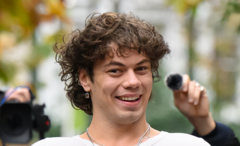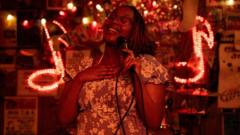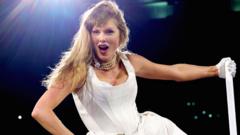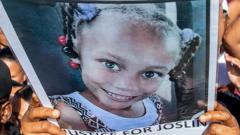In an era dominated by social media and celebrity culture, a new trend emerges as fans of all ages flock to lookalike competitions, creating a playful space for self-expression and connection.
Celebrity Doppelganger Trend Sparks Joy and Connection Among Fans

Celebrity Doppelganger Trend Sparks Joy and Connection Among Fans
Lookalike competitions offer an entertaining escape from reality, fostering community and fun.
This past month has seen the rapid rise of celebrity lookalike contests across the United States and the UK, ignited by the recent Timothée Chalamet lookalike event in New York City that even attracted the actor himself. This quirky hobby has drawn crowds who fancy themselves as doppelgangers of heartthrobs like Harry Styles and Dev Patel, all vying for fleeting fame and modest cash prizes, alongside eternal bragging rights.
Miles Mitchell, a 20-year-old university student who recently won the Chalamet competition, recalls being mistaken for the actor while studying in South Korea. Excited by the community aspect of these free events, he highlights the opportunity for fun and socializing that doesn’t break the bank. "It was just something a bit different and wacky that I wanted to be part of," he explained.
Social media has amplified the enthusiasm for these gatherings, with attendees celebrating their own humor and absurdity. The lookalike contests, featuring young men in their prime, provide a refreshing twist on historical celebrity impersonations, where participants experience a temporary shift in social dynamics. "Women are relishing the opportunity to objectify men," shared Avani Johnson, an attendee at the Chalamet contest.
In London, musician Oscar Journeaux leveraged his recent victory in a Harry Styles lookalike competition as a creative publicity stunt to promote his music career. He commented on how this trend encapsulates a common craving among millennials and Gen Z for entertainment amid the mundane. “We’re all just bored millennials looking for something to do,” he noted.
The organizers behind these events have recognized their potential to foster community interaction amid current societal negativity. Journalist Katrina Mirpuri organized one such event to promote joy and laughter, leading to unexpected crowds that filled Soho Square and uproarious cheers for participants regardless of their resemblance to the celebrity in question.
Jaipreet Hundal celebrated becoming the top Dev Patel lookalike in San Francisco, illustrating how these light-hearted competitions bolster social connections and community ties. "It’s a great way to get people together to have a wholesome time," he stated.
Meanwhile, Julyus Odreman, known for his uncanny resemblance to Zayn Malik, shared humorous anecdotes of being recognized in public. This experience, while often amusing, illustrates the impact of celebrity culture, with Julyus sometimes feeling disconnected from his true identity.
These enjoyable lookalike events continue to cultivate joy and have sparked a new wave of community strongly in need of fellowship and happiness, encapsulating the ongoing struggle to find positivity in an often bleak world. As the trend grows, organizers like Jaz Arnold are keen to embrace this escape, emphasizing inclusivity and camaraderie among attendees. It’s a fun way for people to engage, laugh, and perhaps find a little magic in their similarities to their favorite stars.






















